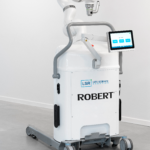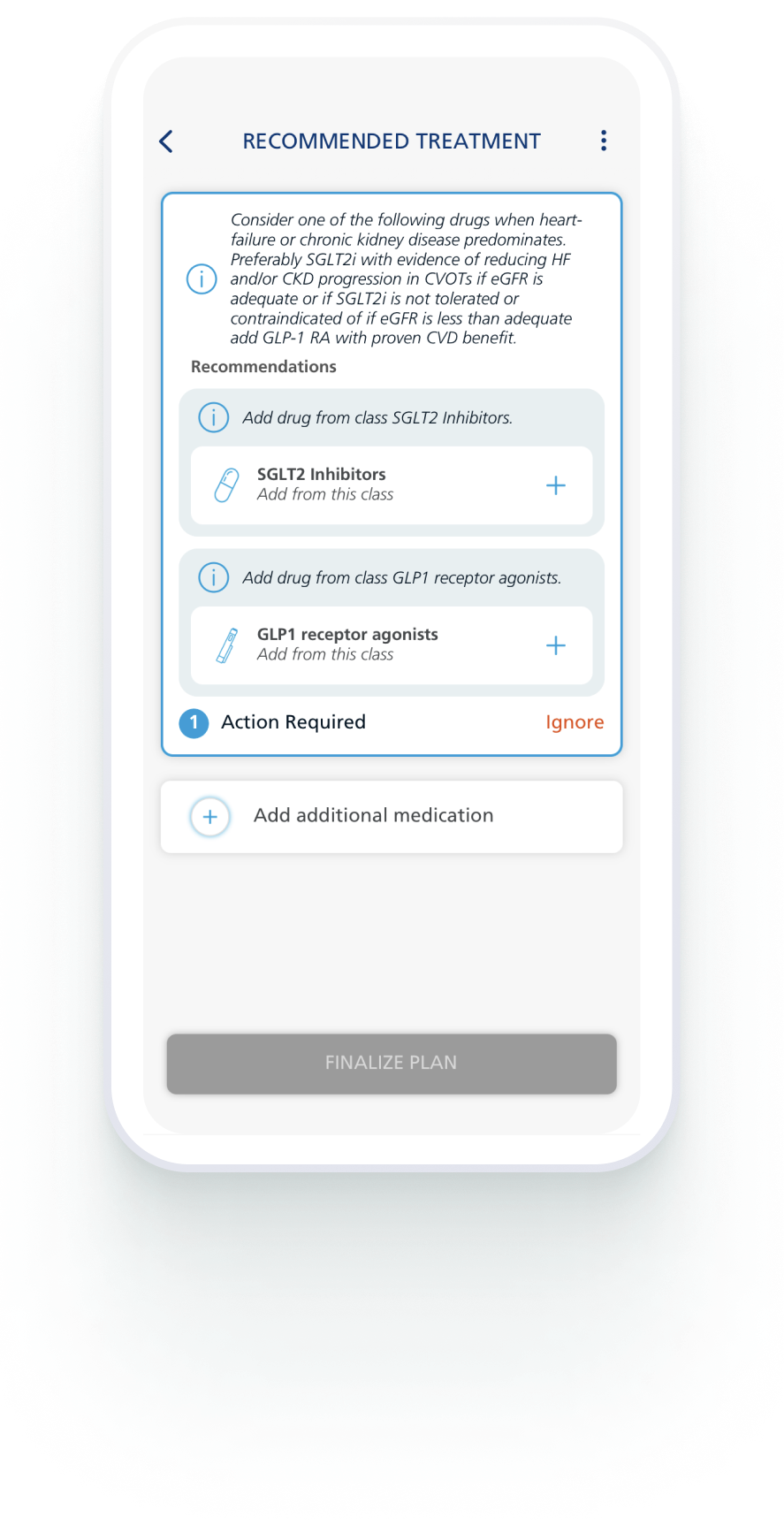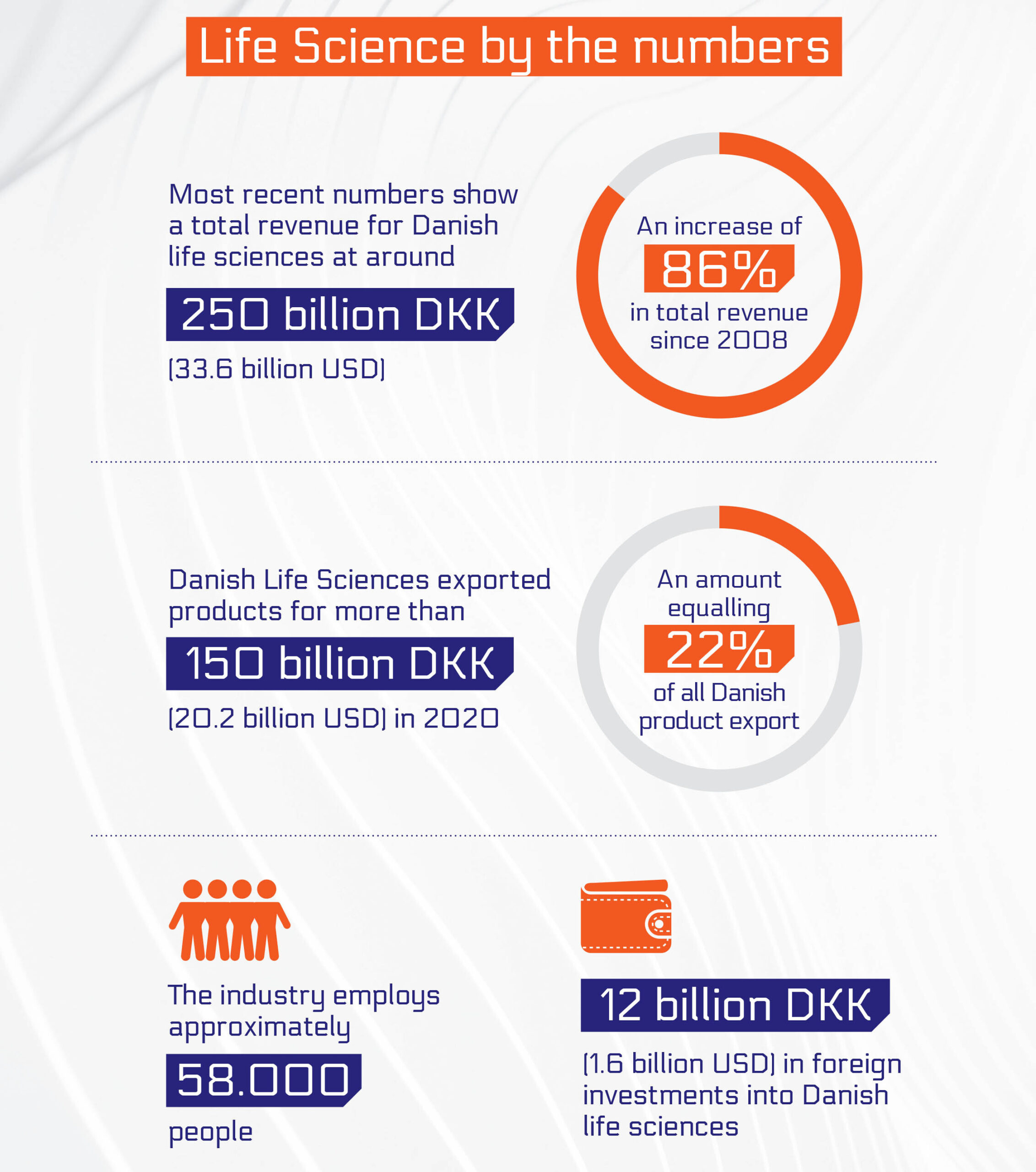Fewer hands will have to treat more patients and provide more services in the future. This calls for new technological solutions across the sector – and the doctor’s toolbox, in particular, is evolving faster than ever before.
The challenges in the health sector have acted as a catalyst for one thing in particular: Conventional healthcare is facing a technological revolution, and doctors and nurses will spend far more of their time in the company of robots, artificial intelligence and data-driven devices.
One of them is the rehabilitation robot ‘Robert’, which the Aalborg company Life Science Robotics is behind. The robot both relieves the rehabilitation of paralysed blood clot and spinal cord patients, for example, and enables healthcare professionals to define the movement patterns and sequences that the person concerned must undergo.
“People have underestimated both the effect and the intensity of training in the past. That amount can often be 1-2 hours a day depending on the person, and it’s actually similar to being an elite athlete. This would be enormously exhausting for a professional to handle, but with ‘Robert’ we see that the patient takes ownership of his own rehabilitation more quickly and thus recovers faster,” explains Keld Thorsen, CEO of Life Science Robotics.
Today, around 15,000 Danes are affected by blood clots every year. It costs about DKK 2.03 billion in rehabilitation and care, according to the National Board of Health. But with robotic solutions, the bill can be halved – and often more than that.
Need medication? Here’s an app
When healthcare is combined with technology, it often results in significant breakthroughs. One of them is the healthcare software company Dawn Health, which is specialised and certified in developing software as medical devices.
Right now, the company is developing the Diabetes Journey app, which will use artificial intelligence to assist and upgrade GPs’ treatment of patients with diabetes. Through the Diabetes Journey app, healthcare professionals simply enter a range of relevant information and personal goals, after which the software provides recommendations for treatment.
“To understand the app structure, imagine an inverted bonsai tree. The more layers of data the doctor goes through about, for example, medical complications, financial challenges, heart disease or intolerance, the treatment becomes more and more personalised and sophisticated using our decision support software called Bonzai,” says Daniel Gewecke Daugaard, CEO of Dawn Health.
Worldwide, approximately 463 million adults (20-79 years) live with the disorder. By 2045, that figure will have risen to 700 million, and in most places today it is already a truly widespread disease.
“I am convinced that software as medical device (SaMD) will become a megatrend. The decision will still be made by the doctor, but we will see more and more digital solutions supporting and upgrading complex treatment processes in particular,” says the entrepreneur.
The right diagnosis in a split second
Danish startup Corti is behind a sound-based artificial intelligence engine that supports healthcare professionals during patient consultations at emergency centres. The AI-powered software listens in on calls, writes notes, searches databases and compares symptom descriptions.
“As patients, we often expect a perfect diagnosis right away, but an early diagnosis will inevitably be influenced by judgements and estimates. This is where artificial intelligence can step in and listen in on patient consultations, find patterns, write medical records and support healthcare professionals in their assessments – and ultimately help save lives, as we have seen with emergency response,” says Andreas Cleve, CEO and co-founder of Corti.
Through research, Corti has developed an AI engine that analyses patterns in a patient’s voice and breathing and can reduce the number of undetected cardiac arrests by more than 50 percent.
Eventually, the people behind it hope to become an integral part of the healthcare professional’s toolkit.
“The dream is to be able to help much earlier in a course of treatment – before symptoms become acute. With Corti, we want to get to a place where artificial intelligence can help predict, for example, the risk of a patient developing an acute illness, as soon as the patient visits general practice, rather than only being able to help once the damage has been done and the emergency services are called out. We assist our customers in more than 25 million patient consultations every year, but we hope to cover up to 100 million consultations within a few years,” says the entrepreneur.














 Kære læser, du er meget velkommen til at dele vores artikler på sociale medier, linke eller referere til artikler eller content på TechSavvy.media. Men ønsker du helt eller delvist at kopiere indhold fra sitet må det kun ske efter aftale med vores redaktion på editorial@techsavvy.media.
Kære læser, du er meget velkommen til at dele vores artikler på sociale medier, linke eller referere til artikler eller content på TechSavvy.media. Men ønsker du helt eller delvist at kopiere indhold fra sitet må det kun ske efter aftale med vores redaktion på editorial@techsavvy.media.
 Kære læser, du er meget velkommen til at dele vores artikler på sociale medier, linke eller referere til artikler eller content på TechSavvy.media. Men ønsker du helt eller delvist at kopiere indhold fra sitet må det kun ske efter aftale med vores redaktion på editorial@techsavvy.media.
Kære læser, du er meget velkommen til at dele vores artikler på sociale medier, linke eller referere til artikler eller content på TechSavvy.media. Men ønsker du helt eller delvist at kopiere indhold fra sitet må det kun ske efter aftale med vores redaktion på editorial@techsavvy.media.